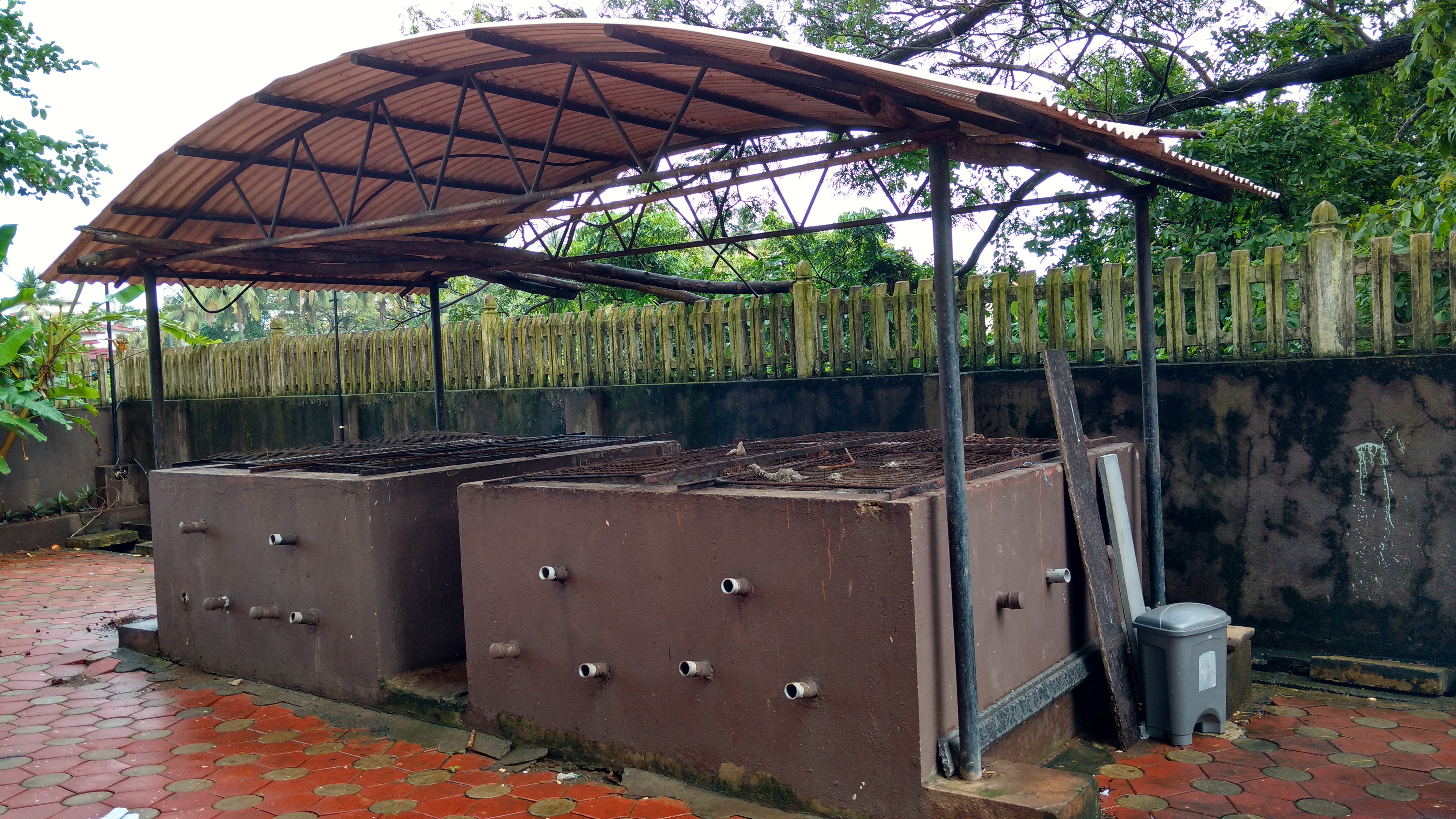
WHAT A WASTE 2.0
A Global Snapshot of Solid Waste Management to 2050

Decentralized composting unit in residential colony
Across global food systems, food loss and waste (FLW) is a widespread issue, posing a challenge to food security, food safety, the economy, and environmental sustainability. No accurate estimates of the extent of FLW are available, but studies indicate that FLW is roughly 30 percent of all food globally (FAO 2015). This amounts to 1.3 billion tonnes per year. FLW represents wastage of resources, including the land, water, labor, and energy used to produce food. It strongly contributes to climate change because greenhouse gases are emitted during food production and distribution activities, and methane is released during the decay of wasted food. FLW also affects food supply chains by lowering income for food producers, increasing costs for food consumers, and reducing access to food. Minimizing FLW could lead to substantial food security and environmental gains.
The causes of FLW vary across the world and depend on specific local conditions. Typically, FLW in low-income countries occurs at the production, postharvest handling, storage, and processing stages and is caused predominantly by managerial and technical limitations. FLW mostly occurs in the distribution and consumption stages in middle- and high-income countries, although it can happen in earlier stages such as when agricultural subsidies lead to overproduction of farm crops. These challenges relate to consumer behavior and government policies and regulation.
Improving coordination among actors along the different stages of the supply chain could address some of the FLW issues globally. Measures to reduce FLW in low-income countries could involve investment in infrastructure and transportation, including in technology for storage and cooling. Small-scale farmers could also be supported by provision of improved financing and credit to allow them to diversify or scale their production. In high-income countries, consumer education for behavior change is key to decreasing FLW. In addition to decreasing FLW along the supply chain, discarded food could also be managed productively for composting and energy recovery.
Regional and international stakeholders are taking action to address FLW. The African Union is working with 14 governments to translate the “Malabo Declaration on Accelerated Agricultural Growth and Transformation for Shared Prosperity and Improved Livelihoods,” including food loss reduction, into proper national policy and strategies in Africa (African Union Commission 2014). The Deputy-Secretary General of the United Nations called on all partners to adopt a more holistic approach to food security, one that prioritizes FLW, builds new coalitions, scales up current work, and innovates (Helvetas 2018). The Food and Agriculture Organization has been working on developing new metrics and methodologies to measure FLW, and the organization’s SAVE FOOD Initiative works with civil society to address the issue (FAO 2018). The World Food Programme is including food loss as part of some five-year country plans in Africa and launched the Farm to Market Alliance to structure local markets and promote loss reduction technologies among smallholder farmers (World Food Program 2017). The World Bank is tackling the issue through loans, such as in Argentina, and by coordinated food waste management and the establishment of a cross-sectoral strategy (World Bank 2015).